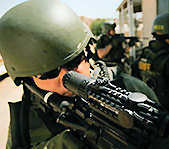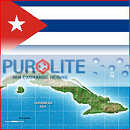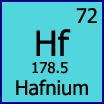 Qing Li, a Chinese permanent resident in the United States, was recently indicted for attempting to export piezoresistive accelerometers to China without a license from the State Department’s Directorate of Defense Trade Controls (“DDTC”). Ms. Li had sent an email to undercover investigators asking to buy the accelerometers. Although the woman never received the accelerometers, she was arrested as she was boarding a flight to China at JFK Airport.
Qing Li, a Chinese permanent resident in the United States, was recently indicted for attempting to export piezoresistive accelerometers to China without a license from the State Department’s Directorate of Defense Trade Controls (“DDTC”). Ms. Li had sent an email to undercover investigators asking to buy the accelerometers. Although the woman never received the accelerometers, she was arrested as she was boarding a flight to China at JFK Airport.
Julie Myers, Assistant Secretary at the Department of Homeland Security (“DHS”) and head of Immigration and Customs Enforcement (“ICE”) had these comments on the indictment:
These devices are simply not for export to China or anywhere else without explicit permission from the U.S. government. … Accelerometers are a designated defense article frequently used in missiles, ‘smart bombs’ and other major weapons systems and in the wrong hands, could prove catastrophic.
This case may not, however, be as cut and dried and Ms. Myer wants us to believe.
Piezoresistive accelerometers have a number of non-military uses, including automobile crash testing, flutter testing, and biomedical motion studies. Nor are all accelerometers designated defense articles. Category XII(d) of the United States Munitions List (“USML”) covers only “military accelerometers.” The Missile Technology Control Regime Annex of the USML only covers accelerometers with specified performance characteristics. Item 9, Category II covers only “continuous output” accelerometers “specified to function at acceleration levels greater than 100 g” or
Accelerometers with a threshold of 0.05 g or less, or a linearity error within 0.25 percent of full scale output, or both, which are designed for use in inertial navigation systems or in guidance systems of all types
The accelerometers in question were Endevco accelerometers. The Endevco website has a listing of available piezoresistive accelerometers and detailed specifications. Not one of the data sheets on the available accelerometers, at least that I could find, indicated that the particular accelerometer required a State Department license for export or that it was a military accelerometer. This accelerometer comes the closest, since the website states that it can be used in crash test dummies and in flight navigation systems. Nor did any of these products, as described in the data sheets, appear to me to meet the other specific technical specifications (e.g., designed to function at over 100g) listed above.
This indictment illustrates the dangers faced by exporters. Even if an exporter checks the USML and compares it to the technical specifications of the product to be exported, that may not reveal that the item is, in fact, export controlled. At a very minimum, companies that sell export-controlled items should clearly mark such items as export-controlled in their sales literature and data sheets. Absent that, there is a non-frivolous argument that the company itself has some liability for illegal exports of items that were not clearly disclosed as such.
I am trying to get the indictment, which may reveal other information that indicates the Ms. Li knew that the particular accelerometers she was seeking were, in fact, subject to export controls and listed on the USML. Once I obtain a copy, we’ll post it here and look at what evidence, if any, supports any claim that she had knowledge of the controlled status of the items she was trying to export.

 Posted by
Posted by  Category:
Category: 

 A friend of mine, a former policeman who now sits on the U.S. Court of Appeals for the Ninth Circuit, used to say that the easiest thing about being a cop was that most criminals are really, really stupid. Case in point:
A friend of mine, a former policeman who now sits on the U.S. Court of Appeals for the Ninth Circuit, used to say that the easiest thing about being a cop was that most criminals are really, really stupid. Case in point:  Sometimes the Cuba embargo can be good for U.S. business — at least for the business of U.S. law firms. In the latest turn of events in the Purolite saga, which involves trading by a Purolite foreign subsidiary with Cuba, a federal district court recently ruled that a U.S. attorney involved in the prosecution may have to testify in a malpractice suit against a law firm that allegedly advised the defendants that the illegal trades were proper. Brodie v. United States Department of Justice, 2007 WL 2972577 (E.D.Pa. 2007)
Sometimes the Cuba embargo can be good for U.S. business — at least for the business of U.S. law firms. In the latest turn of events in the Purolite saga, which involves trading by a Purolite foreign subsidiary with Cuba, a federal district court recently ruled that a U.S. attorney involved in the prosecution may have to testify in a malpractice suit against a law firm that allegedly advised the defendants that the illegal trades were proper. Brodie v. United States Department of Justice, 2007 WL 2972577 (E.D.Pa. 2007) We have
We have  Devotees of the New Yorker will no doubt remember items that used to be short entries titled “There Will Always Be an England.” A typical item under that heading recounted humorous but true anecdotes of quaint English behavior. You know, the story of an eccentric don who wins the lottery and uses the proceeds to buy first-class plane tickets to Sardinia for two voles that he nursed back to health after they were run over by a lorry in Dorset.
Devotees of the New Yorker will no doubt remember items that used to be short entries titled “There Will Always Be an England.” A typical item under that heading recounted humorous but true anecdotes of quaint English behavior. You know, the story of an eccentric don who wins the lottery and uses the proceeds to buy first-class plane tickets to Sardinia for two voles that he nursed back to health after they were run over by a lorry in Dorset. 

